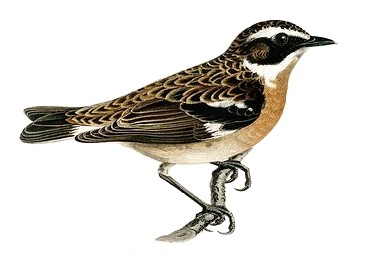
Welcome to part 4 of the Poetry Basics blog series! If you missed part 1 where I shared some inspiration, ideas, and helpful resources, part 2 on how to write the first few lines, or part 3 on how to develop your poem, you can find that those parts here:
Today, I will continue about the writing process – Penning That Powerful Ending!
A Powerful Ending
A powerful ending is the key to a memorable poem. Even if the rest of your poem is written in a expert, masterly way, a weak ending can spoil your piece. This is, for me at least, one of the trickiest aspects of writing poetry. In my experience, the perfect ending either presents itself immediately or else it completely evades consideration.
One of my favorite poems that I wrote is Mildred:
Mildred
by Natalie Claire
Let me paint her as I see her,
Every golden afternoon.
With eyes of blue that sparkle,
Bright as the sun in June.
With amber curls that lightly fall
Around her shining face.
A softness in her gentle step,
To match the angels’ grace.
A smile on her ruby lips.
Contentment on her mind.
Always a loving word to share.
Her manners meek and kind.
I often think perhaps she is,
An angel in disguise,
For God is in her very soul,
And Heaven in her eyes.
Not only do I love the theme of this poem, but I also consider the last stanza one of the most powerful poem endings that I have written. (And the poem fits the painting it was inspired by.)
Weak Endings
I’ve written other poems that, while the beginning and middle passed my writer’s inspection, the end was weak enough to deflate the rest of the poem. Several of these poems were penned years ago – and I still have not found the right wording to improve them.
My one poem, Snowflakes, was written several years ago, and while I have long intended to rewrite and improve the ending, I have never been able to find just the right words for it. As a poem, I’ve always loved the beginning and middle, but the weakness of the ending is something that has bothered me for a while.
Snowflakes
by Natalie Claire
They drifted down from wintered skies,
As many fluffs of tumbling cloud,
Dancing as tho’ to mesmerize,
Falling as if a wintry shroud.
Whirling in tempestuous wind,
Light as the heart of one in love,
Cascading from the firmament,
Descending from the veil above.
Dark doth the brumal sky appear,
When swarming with this dancing host,
A shadow-envelop’d premiere,
A spectacle of Winter’s ghost.
Pirouetting on the snow-clad ground,
It dons the aura of grace,
Holding an audience spellbound,
Drawing rev’rence from every place.
If the right words won’t come or if I’m having trouble remembering that one word, I often turn to someone else for help. Even if they don’t know the answer (or have no clue of what I’m asking), just talking to someone else will often help me out of my difficulty.
If you seriously cannot come up with a powerful ending, that’s fine. I have dozens of unfinished poems. That’s just part of writing poetry. Some of them may eventually get finished in the future, while some may sit around uncompleted forever. And I’m fine with that.
So don’t despair if you can’t find the perfect ending for your poem. Be willing to set it aside. It’s not worth stressing out about.
Conclusion
A powerful ending is one of the key elements to a memorable poem. It is also, however, often one of the trickiest parts of writing good poetry. So try to give your piece as powerful of an ending as you can manage, but if the right words are evading you, it’s alright to set it aside till later.

P.S. You can also follow me at my other blog, Kenmore Pines 1, here.
To learn more about this blog check out my blog launch post here.
